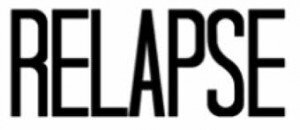
Actor Philip Seymour Hoffman reportedly died after taking drugs, having apparently been clean for more than two decades. But what makes someone relapse like this?
Philip Seymour Hoffman first checked himself into rehab after graduating in drama from New York University in 1989. He was a heroin user and addicted to alcohol. In an interview in 2011 he said that problem was “pretty serious” at the time. “I know, deep down, I still look at the idea of drinking with the same ferocity that I did back then. It’s still pretty tangible. Just because all that time’s passed doesn’t mean maybe it was just a phase. That’s you know, that’s who I am,” he added.
While it might strike most non-addicts as strange that someone would revert to destructive behavior after years of sobriety, it is actually common. “Heroin abuse is a persistent and pernicious disorder and it’s difficult to break free from it. “A relapse is common.”
The fundamental issue is the long-term nature of the problem. “It’s addiction that is the problem. “It’s an illness that doesn’t go away. You put down the drugs and everyone thinks that you have stopped the problem but that’s not the case.”
The mental and physiological problem of addiction will make someone relapse and need to be put into the same realm as depression. “It simmers in the background – people can learn to cope with it or overcome it but it’s not a problem that can be cured.” Particular triggers can spark a relapse, like with any addiction, such as smoking. The trigger could be a stressful day at work, a break up or a couple of drinks – the same pattern of relapse can be seen in the use of drugs like heroin, says Elam. “We often see problems of family troubles, losing a job, long-term illness, bereavement, relationship issues, stress, and so on.”
A former addict could have seen someone picking up some drugs that they used to take, have had a familiar drink, or even seen an old friend from the time that they were using.
Whatever the situation, a relapse is always a conscious decision. It starts with an emotional relapse that can start months before use. “Hoffman would have known that he was going to do it – it doesn’t just happen.” And giving in to the trigger is often down to complacency. “Sometimes when people have been clean for a while they think they have overcome the illness of addiction. This just isn’t the case. They think they can deal with the drug because they have managed to control themselves for so long.
Their ability to control themselves to the extent of not taking the drug then erroneously leads them to believe they could therefore handle taking the drug. This can result in a relapse into drug use.
